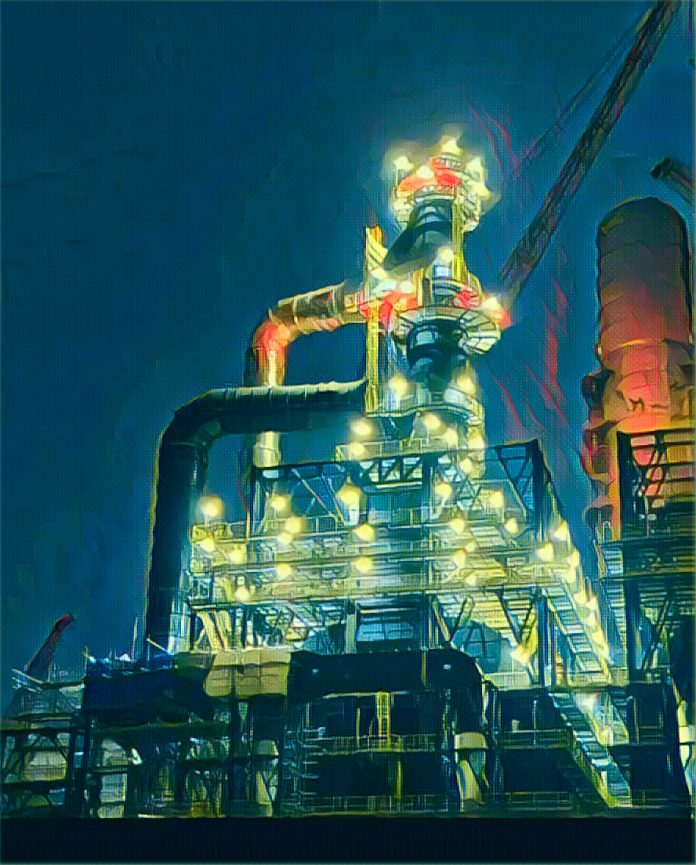Dangote Refinery has reached a remarkable milestone, doubling Nigeria’s 11-year power output with its state-of-the-art facility. This achievement marks a significant step forward in the country’s energy sector and showcases the potential for industrial projects to contribute to national power production.
The Dangote Refinery, located in Lekki Free Trade Zone near Lagos, is poised to become Africa’s largest oil refinery and the world’s largest single-train facility upon completion. The refinery’s integrated power plant, which recently began operations, has already produced more electricity than Nigeria’s entire power grid has managed to sustain over the past 11 years. This milestone is a testament to the advanced technology and efficient management practices employed at the refinery.
Aliko Dangote, President and CEO of Dangote Group, expressed his pride in the refinery’s achievements and its role in addressing Nigeria’s chronic power shortages. “The successful doubling of Nigeria’s 11-year power output is a clear indication of our commitment to transforming the energy landscape of the country. We are dedicated to providing sustainable energy solutions that will drive economic growth and development,” Dangote stated.
The refinery’s power plant has an installed capacity of 570 megawatts (MW), significantly boosting the country’s electricity supply. This contribution is expected to alleviate some of the pressure on Nigeria’s national grid, which has struggled with frequent outages and insufficient capacity to meet the growing demand.
Nigeria’s power sector has been plagued by various challenges, including aging infrastructure, lack of investment, and operational inefficiencies. These issues have resulted in an unstable power supply, affecting both residential and industrial consumers. The introduction of a reliable power source from the Dangote Refinery is seen as a critical development in mitigating these challenges.
Industry experts have lauded the refinery’s achievement as a game-changer for Nigeria’s energy sector. “The impact of the Dangote Refinery’s power output cannot be overstated. It not only provides much-needed electricity but also sets a new standard for what can be achieved with the right investment and expertise,” said Dr. Olusegun Akinbami, an energy analyst.
The refinery’s power generation capability is part of a broader strategy to ensure self-sufficiency and efficiency in its operations. By producing its own electricity, the refinery reduces reliance on the national grid, ensuring uninterrupted production processes. This self-sufficiency is crucial for the refinery’s goal of producing 650,000 barrels of crude oil per day, significantly boosting Nigeria’s refining capacity and reducing dependency on imported petroleum products.
In addition to its power generation success, the Dangote Refinery is expected to have a profound economic impact. The project has created thousands of jobs during its construction phase and is set to generate even more employment opportunities once fully operational. Furthermore, the increased refining capacity will help stabilize fuel prices and improve energy security in Nigeria.
The Nigerian government has welcomed the refinery’s contributions to the energy sector, viewing it as a key component of the country’s economic development plans. Minister of Power, Sale Mamman, praised the project, stating, “The Dangote Refinery’s achievement in doubling Nigeria’s power output is a monumental success. It exemplifies the potential of private sector investment in transforming our power sector and driving national growth.”
Looking ahead, the Dangote Refinery aims to continue expanding its operations and exploring new opportunities to enhance Nigeria’s energy landscape. The successful doubling of the country’s power output is just the beginning of what promises to be a transformative journey for Nigeria’s energy independence and economic prosperity.
In conclusion, the Dangote Refinery’s achievement in doubling Nigeria’s 11-year power output underscores the importance of innovative industrial projects in addressing critical infrastructure challenges. As the refinery continues to grow, it offers a beacon of hope for a more stable and prosperous energy future for Nigeria.
Source of this article: businessday.ng



